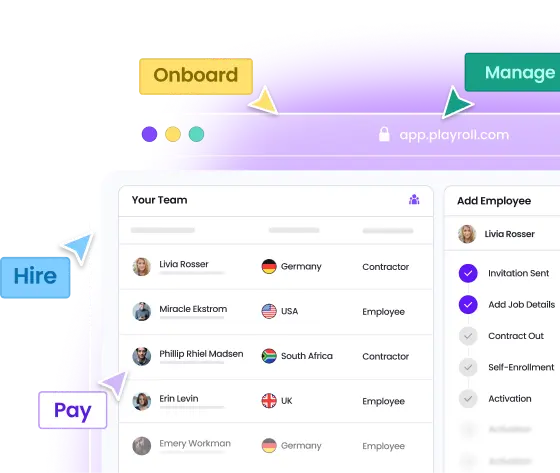What Are the Standard Working Hours in the United States?
In the United States, the Fair Labor Standards Act (FLSA) does not mandate a maximum number of hours that employees aged 16 and older can work in a day or week. However, the Occupational Safety and Health Administration (OSHA) suggests a maximum of 8 consecutive hours a day for five days a week, with an 8-hour rest. Weekly, a day of rest is mandated, and those working over 4 hours daily should have a 10-minute break per hour worked.
Maximum Working Hours in the United States
While the FLSA does not set a maximum number of working hours, it does require that non-exempt employees receive overtime pay for hours worked over 40 in a workweek. Employers are not required to pay overtime to exempt employees, such as certain executive, administrative, and professional employees.
Industry-Specific Exceptions
Certain industries have unique working hour regulations. For example, under Title 5, overtime is hours of work authorized or approved by management in excess of 8 in a day or 40 in a week.
Managerial and Exempt Employees
Managerial or exempt employees, such as certain executive, administrative, and professional employees, are not entitled to overtime pay under the FLSA. To qualify for exemption, employees must meet specific criteria related to their job duties and salary level. As of 2025, executive, administrative, and professional employees must earn a minimum salary of $684 per week (or $35,568 per year) to qualify for overtime exemption.
Statutory Full-Time Working Hours in the United States
The FLSA does not define full-time employment in terms of weekly hours. The determination of full-time status is generally made by the employer and may vary across industries and roles.
Overtime Regulations in the United States
Under the FLSA, non-exempt employees must receive overtime pay for hours worked over 40 in a workweek at a rate not less than 1.5 times their regular rates of pay. There is no limit in the Act on the number of hours employees aged 16 and older may work in any workweek.
What Counts as Overtime in the United States?
Overtime refers to any hours worked over 40 in a workweek for non-exempt employees. The FLSA does not require overtime pay for hours worked over 8 in a day, but some states have their own regulations regarding daily overtime.
Maximum Overtime in the United States
The FLSA does not set a maximum number of overtime hours. However, employers must comply with state laws and regulations, which may impose additional restrictions on working hours and overtime.
Overtime Payout Rates in the United States
Under the FLSA, non-exempt employees must receive overtime pay at a rate not less than 1.5 times their regular rates of pay for hours worked over 40 in a workweek.
Rest Periods and Breaks in the United States
The FLSA does not require employers to provide rest periods or meal breaks. However, if employers do provide short breaks (typically lasting about 5 to 20 minutes), they must be paid. Meal periods (typically lasting 30 minutes or more) are generally not paid if the employee is relieved of all duties during the break.
Night Shifts and Weekend Regulations
The FLSA does not have specific regulations regarding night shifts or weekend work. Employers are not required to pay employees extra for working during these times unless specified in the employment contract or under state laws.
Disclaimer
THIS CONTENT IS FOR INFORMATIONAL PURPOSES ONLY AND DOES NOT CONSTITUTE LEGAL OR TAX ADVICE. You should always consult with and rely on your own legal and/or tax advisor(s). Playroll does not provide legal or tax advice. The information is general and not tailored to a specific company or workforce and does not reflect Playroll’s product delivery in any given jurisdiction. Playroll makes no representations or warranties concerning the accuracy, completeness, or timeliness of this information and shall have no liability arising out of or in connection with it, including any loss caused by use of, or reliance on, the information.
.svg)
.svg)
.svg)





.svg)



.png)












.webp)









.svg)